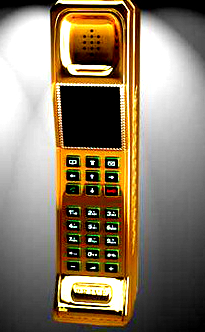Telstra issues SIM warning
 Telstra has issued a warning over cheap SIMs and cut-price data plans.
Telstra has issued a warning over cheap SIMs and cut-price data plans.
Telstra head of security services Jacqui McNamara says users “get what [they] pay for” when it comes to mobile.
“Telstra maintains the fifth largest security team in the country,” she said at a recent conference.
“We spend a lot of money on data security and we have a lot of things in place to monitor the network and scan for faults.
“If you are buying a SIM card from a carrier that is very cheap, has very cheap data rates, doesn’t live in this country and doesn’t necessarily comply with [data protection] regulations you just have to be conscious that you get what you pay for.
“They’re not scanning the network for mobile malware possibly or really doing a lot to advise you if you’ve got a data breach and they may not even need to comply with regulations in Australia, depending on where you purchase the SIM card.”
Ms McNamara said Telstra is constantly improving cyber security, including increasing the use of verification codes to authenticate users.
“In security we tend to be a bit down on users,” she said.
“There’s a bit of user-bashing that goes on which I find unfortunate. Security people say things like; ‘If I had a dollar for every time users clicked on a link…’”
“Users are both our last line of defence and our first line of defence, so educating them is hugely important - not to click on things, to think about things when they do them, and to actually consider being suspicious by default.
“I would never get annoyed - and our customer service teams don’t get annoyed - when people say; ‘I don’t trust that, you need to give me a number to check that on, I’m not giving you that information’ [over the phone].
“Telstra’s call centres now will find another way to authenticate you if you don’t want to pass that data out.”







 Print
Print